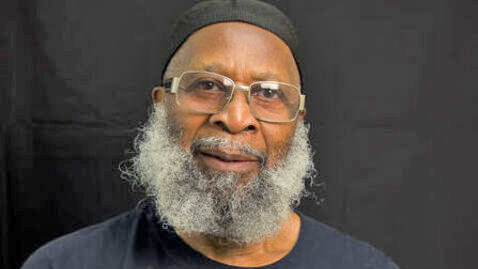Sekou Odinga, Black liberation fighter and former political prisoner, passes at 79
[Mirrored from PeoplesDispatch.org, posted January 16, 2024, written by Natalia Marques]

Odinga leaves behind a legacy of resistance, having helped Assata Shakur escape prison and having been a member of the most notable Black liberation organizations
Sekou Odinga, a former United States political prisoner for 33 years stemming from his involvement in the Black liberation movement, passed away on January 12. Odinga was a part of several of the most impactful organizations in US Black liberation history, including Malcolm X’s Organization of Afro-American Unity, the Black Panther Party, and the Black Liberation Army. Odinga is also known for his role in the escape of fellow political prisoner Assata Shakur, who lives free in Cuba to this day.
Odinga was released from prison in 2014. Regarding his role in Shakur’s escape, he never pleaded guilty to charges, but told Democracy Now! in 2016 that he was “proud to be associated with the liberation of Assata Shakur.”
Speaking about what drew him to the program of the Black Panther Party, Odinga told Democracy Now!, “What attracted me more than anything else was the stand against police brutality, because like all the other ghettos in this country or Black areas of this country, police brutality was running rampant. From my first memory of it was—in New York was little Clifford Glover, who was murdered out in my neighborhood in Jamaica, Queens…what we were really concerned about was trying to put some kind of control on the police, or at least be in a position that we could counter some of what they were doing.” Odinga’s words reflect the legacy of Black liberation movements throughout US history, which from the mass movement sparked by the murder of Emmett Till to the 2020 uprisings after the murder of George Floyd, share a common outrage at the brutal violence waged against Black people.
Nino Brown, an organizer with the Jericho Movement, told Peoples Dispatch, “We in the Jericho Movement were honored to host Sekou, break bread and learn from him so we can continue the fight against oppression and exploitation. He is known to many as ‘Baba Sekou’ and rightfully so.”
“While his life has ended his legacy lives on with all of his comrades and this next generation of revolutionaries,” Brown continued.
“[Odinga] was the epitome of an upstanding Black man and a revolutionary who refused to let this rotten system break him even as it held him captive for over 30 years,” said JD, also an organizer with the Jericho Movement. “And thankfully he got to transition with his loved ones by his side instead of behind enemy lines.”
In 1965, Odinga joined Malcolm X’s Organization of Afro-American Unity, later leaving the organization to found the Bronx chapter of the Black Panther Party. In 1969, Odinga became a part of the group of BPP defendants dubbed the “Panther 21,” who were accused of planning coordinated attacks on two police stations and one education office in New York City. The trial eventually collapsed, following a grassroots campaign in support of the defendants.
Following the increasing police and FBI repression against the BPP, Odinga joined many activists in moving towards underground organizations, such as the Black Liberation Army.



